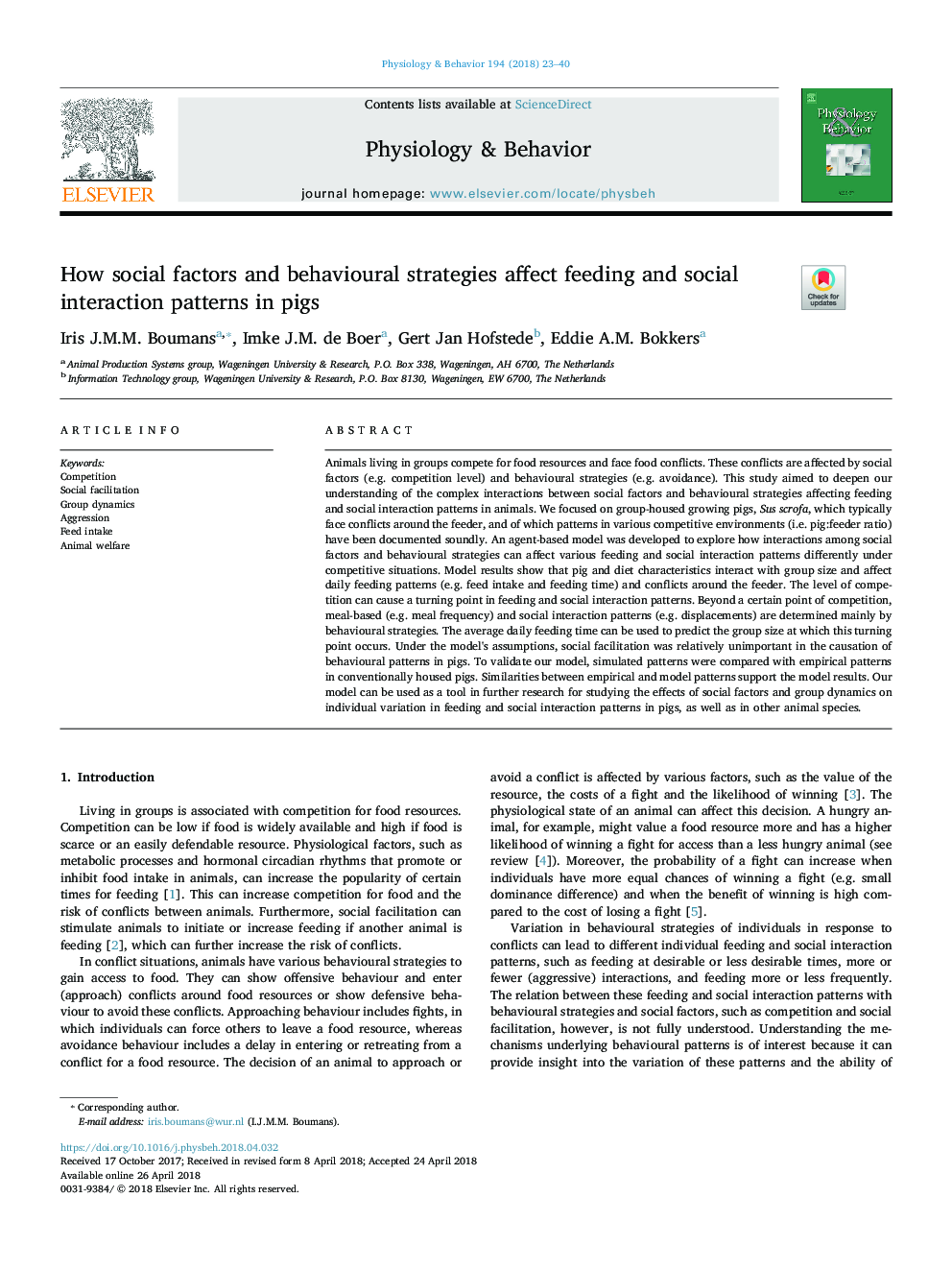| کد مقاله | کد نشریه | سال انتشار | مقاله انگلیسی | نسخه تمام متن |
|---|---|---|---|---|
| 8650229 | 1571124 | 2018 | 18 صفحه PDF | دانلود رایگان |
عنوان انگلیسی مقاله ISI
How social factors and behavioural strategies affect feeding and social interaction patterns in pigs
ترجمه فارسی عنوان
چگونه عوامل اجتماعی و راهبردهای رفتاری بر تغذیه و الگوهای تعامل اجتماعی در خوک ها تأثیر می گذارند
دانلود مقاله + سفارش ترجمه
دانلود مقاله ISI انگلیسی
رایگان برای ایرانیان
کلمات کلیدی
رقابت، تسهیل اجتماعی، پویایی گروه، پرخاشگری مصرف خوراک، رفاه حیوانات،
موضوعات مرتبط
علوم زیستی و بیوفناوری
بیوشیمی، ژنتیک و زیست شناسی مولکولی
فیزیولوژی
چکیده انگلیسی
Animals living in groups compete for food resources and face food conflicts. These conflicts are affected by social factors (e.g. competition level) and behavioural strategies (e.g. avoidance). This study aimed to deepen our understanding of the complex interactions between social factors and behavioural strategies affecting feeding and social interaction patterns in animals. We focused on group-housed growing pigs, Sus scrofa, which typically face conflicts around the feeder, and of which patterns in various competitive environments (i.e. pig:feeder ratio) have been documented soundly. An agent-based model was developed to explore how interactions among social factors and behavioural strategies can affect various feeding and social interaction patterns differently under competitive situations. Model results show that pig and diet characteristics interact with group size and affect daily feeding patterns (e.g. feed intake and feeding time) and conflicts around the feeder. The level of competition can cause a turning point in feeding and social interaction patterns. Beyond a certain point of competition, meal-based (e.g. meal frequency) and social interaction patterns (e.g. displacements) are determined mainly by behavioural strategies. The average daily feeding time can be used to predict the group size at which this turning point occurs. Under the model's assumptions, social facilitation was relatively unimportant in the causation of behavioural patterns in pigs. To validate our model, simulated patterns were compared with empirical patterns in conventionally housed pigs. Similarities between empirical and model patterns support the model results. Our model can be used as a tool in further research for studying the effects of social factors and group dynamics on individual variation in feeding and social interaction patterns in pigs, as well as in other animal species.
ناشر
Database: Elsevier - ScienceDirect (ساینس دایرکت)
Journal: Physiology & Behavior - Volume 194, 1 October 2018, Pages 23-40
Journal: Physiology & Behavior - Volume 194, 1 October 2018, Pages 23-40
نویسندگان
Iris J.M.M. Boumans, Imke J.M. de Boer, Gert Jan Hofstede, Eddie A.M. Bokkers,
